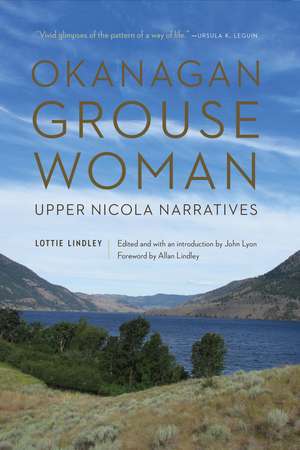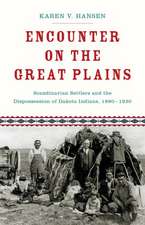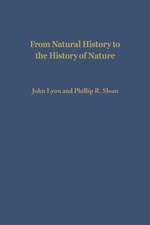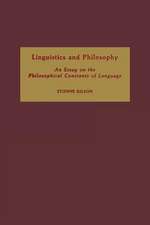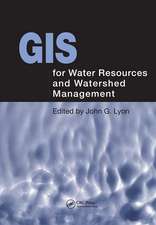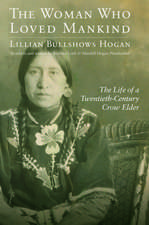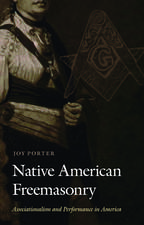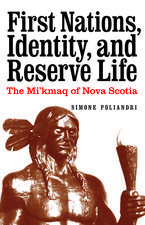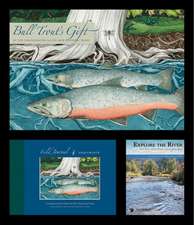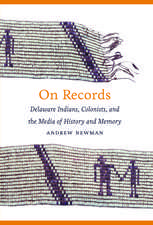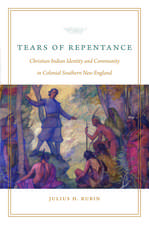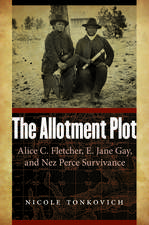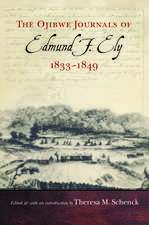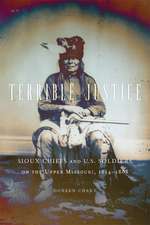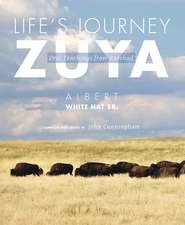Okanagan Grouse Woman: Upper Nicola Narratives
Autor Lottie Lindley Editat de John Lyon Cuvânt înainte de Allan Lindleyen Limba Engleză Paperback – 31 aug 2018
Published through the Recovering Languages and Literacies of the Americas initiative, supported by the Andrew W. Mellon Foundation
In this book of Native American language research and oral traditions, linguist John Lyon collects Salish stories as told by culture-bearer Lottie Lindley, one of the last Okanagan elders whose formative years of language learning were unbroken by the colonizing influence of English. Speaking in the Upper Nicola dialect of Okanagan, a Southern Interior Salish language, Lindley tells the stories that recount and reflect Salish culture, history, and historical consciousness (including names of locales won in battle with other interior peoples), coming-of-age rituals and marriage rites, and tales that attest to the self-understanding of the Salish people within their own history.
For each Okanagan Salish story, Lyon and Lindley offer a continuous transcription followed by a collaborative English translation of the story and an interlinear rendition with morphological analysis. The presentation allows students of the dialect, linguists, and those interested in Pacific Northwest and Interior Plateau indigenous oral traditions unencumbered access to the culture, history, and language of the Salish peoples.
With few native speakers left in the community, Okanagan Grouse Woman contributes to the preservation, presentation, and—with hope—maintenance and cultivation of a vital indigenous language and the cultural traditions of the Interior Salish peoples.
For each Okanagan Salish story, Lyon and Lindley offer a continuous transcription followed by a collaborative English translation of the story and an interlinear rendition with morphological analysis. The presentation allows students of the dialect, linguists, and those interested in Pacific Northwest and Interior Plateau indigenous oral traditions unencumbered access to the culture, history, and language of the Salish peoples.
With few native speakers left in the community, Okanagan Grouse Woman contributes to the preservation, presentation, and—with hope—maintenance and cultivation of a vital indigenous language and the cultural traditions of the Interior Salish peoples.
| Toate formatele și edițiile | Preț | Express |
|---|---|---|
| Paperback (1) | 261.50 lei 43-57 zile | |
| Nebraska – 31 aug 2018 | 261.50 lei 43-57 zile | |
| Hardback (1) | 475.39 lei 22-36 zile | |
| Nebraska – 28 feb 2017 | 475.39 lei 22-36 zile |
Preț: 261.50 lei
Nou
Puncte Express: 392
Preț estimativ în valută:
50.04€ • 52.38$ • 41.40£
50.04€ • 52.38$ • 41.40£
Carte tipărită la comandă
Livrare economică 07-21 aprilie
Preluare comenzi: 021 569.72.76
Specificații
ISBN-13: 9780803286856
ISBN-10: 0803286856
Pagini: 510
Ilustrații: 9 photographs, 2 maps, 1 glossary, 1 appendix, index
Dimensiuni: 152 x 229 x 36 mm
Greutate: 0.69 kg
Editura: Nebraska
Colecția University of Nebraska Press
Locul publicării:United States
ISBN-10: 0803286856
Pagini: 510
Ilustrații: 9 photographs, 2 maps, 1 glossary, 1 appendix, index
Dimensiuni: 152 x 229 x 36 mm
Greutate: 0.69 kg
Editura: Nebraska
Colecția University of Nebraska Press
Locul publicării:United States
Notă biografică
Lottie Lindley (1930–2016) (Nicola Okanagan Salish) was a culture-bearer and one of the last fluent speakers of Nicola Okanagan. John Lyon is a postdoctoral researcher in linguistics at the University of Victoria.
Cuprins
List of Figures
Foreword by Xʷacúʔ (Allan Thomas Lindley)
Preface and Acknowledgments
List of Abbreviations
Editor’s Introduction: The Okanagan Language
PART 1. UPPER NICOLA NARRATIVES: OKANAGAN
1. kɬíw̓sntməlx iʔ t t̓ik̓ʷt
2. ɬaʔ ckc̓x̌ʷípəlaʔs iʔ sənk̓l̓íp
3. iʔ nx̌aʔx̌ʔítkʷ
4. Snʕánʕas
5. k̓l nsk̓ʷuts iʔ t̓ik̓ʷt
6. lkʷilx iʔ tl sənɬq̓ʷútən
7. xʷk̓ʷncut mi sic ʔawspíx̌əm
8. ɬaʔ c̓x̌ʷíltəm iʔ sqilxʷ
9. iʔ t̓yt̓ymuɬ t tətwít
10. ɬaʔ ck̓awíwləx iʔ sqilxʷ
11. ɬaʔ ck̓ʷúl̓əm iʔ sqilxʷ t p̓ínaʔ
12. l Nəq̓áq̓suɬ
13. l Q̓ʷumqnátkʷ
14. iʔ kəkn̓íʔ iʔ ksk̓wilxs
15. cktyáqʷtmstsəlx iʔ təmxʷúlaʔxʷ
16. yaʕyáʕt səʕsáʕtləx k̓im t̓i knaqs t ƛ̓əx̌əx̌ƛ̌x̌áp act̓kíkst
17. iʔ sqiʔsc iʔ knaqs iʔ tkɬmilxʷ
18. uɬ ixíʔ cyaʕp iʔ smsámaʔ
19. ɬaʔ ckicx Douglas
20. kʷu ɬaʔ cq̓əy̓ám k̓l snq̓əy̓míntən
21. Maggie Moore iʔ təmxʷúlaʔxʷs
PART 2. UPPER NICOLA NARRATIVES: ENGLISH TRANSLATIONS AND COMMENTARIES
1. Divided by the Lake
2. When Coyote Ruled
3. The Lake Monster
4. The Snotty-Nose Bird
5. Other Side of the Lake
6. Leave Your Bed
7. Clean Yourself Before Going Hunting
8. When the People Trained
9. The Lazy Boy
10. When the People Became Old
11. How the People Made Baskets
12. At Minnie Lake
Interview with Nellie Guitterez
13. At Chapperon Lake
14. The Kokanees Will Go Upriver
15. They Fought Over the Land
16. They All Fell Off Except One Old Man with a Cane
17. One Woman’s Dream
18. And the White People Came
19. When Douglas Came
20. When We Were Writing in School
21. Maggie Moore’s Land
PART 3. UPPER NICOLA NARRATIVES: INTERLINEAR ANALYSES
1. kɬíw̓sntməlx iʔ t t̓ik̓ʷt / Divided by the Lake
2. ɬaʔ ckc̓x̌ʷípəlaʔs iʔ sənk̓l̓íp / When Coyote Ruled
3. iʔ nx̌aʔx̌ʔítkʷ / The Lake Monster
4. Snʕánʕas / The Snotty-Nose Bird
5. k̓l nsk̓ʷuts iʔ t̓ik̓ʷt / Other Side of the Lake
6. lkʷilx iʔ tl sənɬq̓ʷútən / Leave Your Bed
7. xʷk̓ʷncut mi sic ʔawspíx̌əm / Clean Yourself Before Going Hunting
8. ɬaʔ c̓x̌ʷíltəm iʔ sqilxʷ / When the People Trained
9. iʔ t̓yt̓ymuɬ t tətwít / The Lazy Boy
10. ɬaʔ ck̓awíwləx iʔ sqilxʷ / When the People Became Old
11. ɬaʔ ck̓ʷúl̓əm iʔ sqilxʷ t p̓ínaʔ / How the People Made Baskets
12. l Nəq̓áq̓suɬ / At Minnie Lake
13. l Q̓ʷumqnátkʷ / At Chapperon Lake
14. iʔ kəkn̓íʔ iʔ ksk̓wilxs / The Kokanees Will Go Upriver
15. cktyáqʷtmstsəlx iʔ təmxʷúlaʔxʷ / They Fought Over the Land
16. yaʕyáʕt səʕsáʕtləx k̓im t̓i knaqs t ƛ̓əx̌əx̌ƛ̌x̌áp act̓kíkst / They All Fell Off Except One Old Man with a Cane
17. iʔ sqiʔsc iʔ knaqs iʔ tkɬmilxʷ / One Woman’s Dream
18. uɬ ixíʔ cyaʕp iʔ smsámaʔ / And the White People Came
19. ɬaʔ ckicx Douglas / When Douglas Came
20. kʷu ɬaʔ cq̓əy̓ám k̓l snq̓əy̓míntən / When We Were Writing in School
21. Maggie Moore iʔ təmxʷúlaʔxʷs / Maggie Moore’s Land
Appendix: Interview with Lottie Lindley
Glossary
Notes
Bibliography
Index
Foreword by Xʷacúʔ (Allan Thomas Lindley)
Preface and Acknowledgments
List of Abbreviations
Editor’s Introduction: The Okanagan Language
PART 1. UPPER NICOLA NARRATIVES: OKANAGAN
1. kɬíw̓sntməlx iʔ t t̓ik̓ʷt
2. ɬaʔ ckc̓x̌ʷípəlaʔs iʔ sənk̓l̓íp
3. iʔ nx̌aʔx̌ʔítkʷ
4. Snʕánʕas
5. k̓l nsk̓ʷuts iʔ t̓ik̓ʷt
6. lkʷilx iʔ tl sənɬq̓ʷútən
7. xʷk̓ʷncut mi sic ʔawspíx̌əm
8. ɬaʔ c̓x̌ʷíltəm iʔ sqilxʷ
9. iʔ t̓yt̓ymuɬ t tətwít
10. ɬaʔ ck̓awíwləx iʔ sqilxʷ
11. ɬaʔ ck̓ʷúl̓əm iʔ sqilxʷ t p̓ínaʔ
12. l Nəq̓áq̓suɬ
13. l Q̓ʷumqnátkʷ
14. iʔ kəkn̓íʔ iʔ ksk̓wilxs
15. cktyáqʷtmstsəlx iʔ təmxʷúlaʔxʷ
16. yaʕyáʕt səʕsáʕtləx k̓im t̓i knaqs t ƛ̓əx̌əx̌ƛ̌x̌áp act̓kíkst
17. iʔ sqiʔsc iʔ knaqs iʔ tkɬmilxʷ
18. uɬ ixíʔ cyaʕp iʔ smsámaʔ
19. ɬaʔ ckicx Douglas
20. kʷu ɬaʔ cq̓əy̓ám k̓l snq̓əy̓míntən
21. Maggie Moore iʔ təmxʷúlaʔxʷs
PART 2. UPPER NICOLA NARRATIVES: ENGLISH TRANSLATIONS AND COMMENTARIES
1. Divided by the Lake
2. When Coyote Ruled
3. The Lake Monster
4. The Snotty-Nose Bird
5. Other Side of the Lake
6. Leave Your Bed
7. Clean Yourself Before Going Hunting
8. When the People Trained
9. The Lazy Boy
10. When the People Became Old
11. How the People Made Baskets
12. At Minnie Lake
Interview with Nellie Guitterez
13. At Chapperon Lake
14. The Kokanees Will Go Upriver
15. They Fought Over the Land
16. They All Fell Off Except One Old Man with a Cane
17. One Woman’s Dream
18. And the White People Came
19. When Douglas Came
20. When We Were Writing in School
21. Maggie Moore’s Land
PART 3. UPPER NICOLA NARRATIVES: INTERLINEAR ANALYSES
1. kɬíw̓sntməlx iʔ t t̓ik̓ʷt / Divided by the Lake
2. ɬaʔ ckc̓x̌ʷípəlaʔs iʔ sənk̓l̓íp / When Coyote Ruled
3. iʔ nx̌aʔx̌ʔítkʷ / The Lake Monster
4. Snʕánʕas / The Snotty-Nose Bird
5. k̓l nsk̓ʷuts iʔ t̓ik̓ʷt / Other Side of the Lake
6. lkʷilx iʔ tl sənɬq̓ʷútən / Leave Your Bed
7. xʷk̓ʷncut mi sic ʔawspíx̌əm / Clean Yourself Before Going Hunting
8. ɬaʔ c̓x̌ʷíltəm iʔ sqilxʷ / When the People Trained
9. iʔ t̓yt̓ymuɬ t tətwít / The Lazy Boy
10. ɬaʔ ck̓awíwləx iʔ sqilxʷ / When the People Became Old
11. ɬaʔ ck̓ʷúl̓əm iʔ sqilxʷ t p̓ínaʔ / How the People Made Baskets
12. l Nəq̓áq̓suɬ / At Minnie Lake
13. l Q̓ʷumqnátkʷ / At Chapperon Lake
14. iʔ kəkn̓íʔ iʔ ksk̓wilxs / The Kokanees Will Go Upriver
15. cktyáqʷtmstsəlx iʔ təmxʷúlaʔxʷ / They Fought Over the Land
16. yaʕyáʕt səʕsáʕtləx k̓im t̓i knaqs t ƛ̓əx̌əx̌ƛ̌x̌áp act̓kíkst / They All Fell Off Except One Old Man with a Cane
17. iʔ sqiʔsc iʔ knaqs iʔ tkɬmilxʷ / One Woman’s Dream
18. uɬ ixíʔ cyaʕp iʔ smsámaʔ / And the White People Came
19. ɬaʔ ckicx Douglas / When Douglas Came
20. kʷu ɬaʔ cq̓əy̓ám k̓l snq̓əy̓míntən / When We Were Writing in School
21. Maggie Moore iʔ təmxʷúlaʔxʷs / Maggie Moore’s Land
Appendix: Interview with Lottie Lindley
Glossary
Notes
Bibliography
Index
Recenzii
“[The voice of] Lottie Lindley, full of both personal character and the reserved and patient wisdom of the elder, comes through the transcriptions clearly, movingly, and with cumulative power.”—Ursula K. LeGuin, winner of the National Book Foundation Medal for Distinguished Contribution to American Letters
“This volume sets a new standard for combining accessibility to the speaker community and academic rigor.”—David Beck, professor of linguistics at the University of Alberta
“The collection is masterfully constructed, reflecting Lottie Lindley’s distinctive narrative voice in Okanagan and in English. At once a carefully annotated documentation of the Okanagan language as well as a record of history, culture, and land, the book is a testament to the power of narrative in Okanagan and a wonderful gift to future generations.”—Ewa Czaykowska-Higgins, associate professor of linguistics at the University of Victoria
“John Lyon has changed the mold somewhat in providing complete Nsyílxcen texts on a separate page, preceding the linguistic explanations. This gives advanced learners and teachers an invaluable resource: a wealth of written literature that can be read, enjoyed, and taught from.”—Michele K. Johnson, Syilx Language House Association
